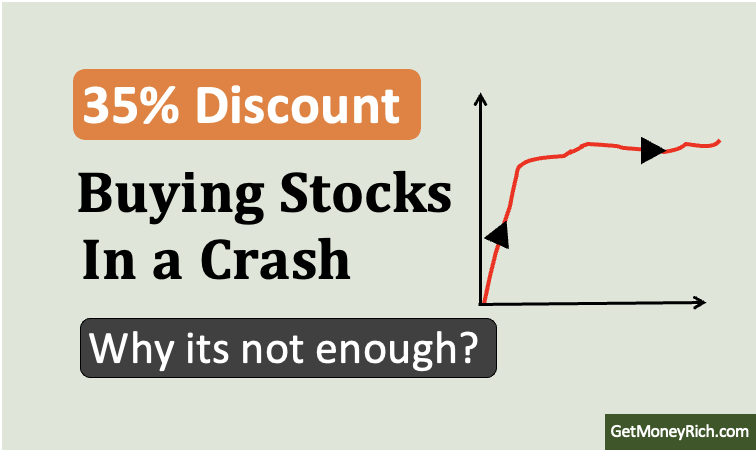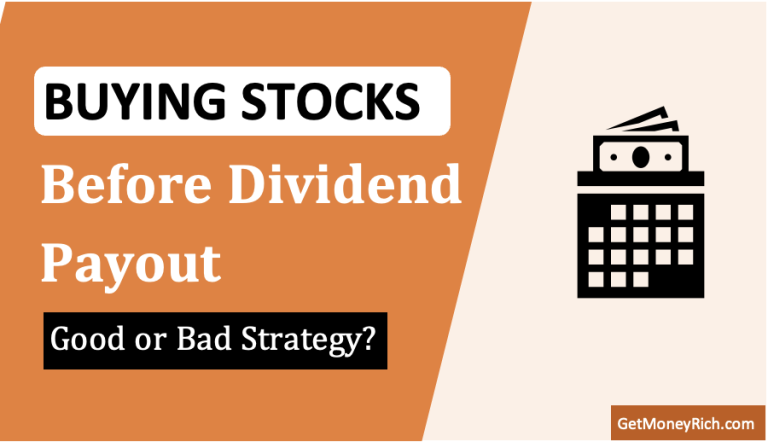Block deals are a significant yet often misunderstood part of stock market transactions. For retail investors curious about their relevance, this guide explores what block deals are, how they work, and whether they matter for long-term investing. Recently, I got forwarded message on WhatsApp, from a friend. The message was encouraging people to engage in block deals. In this post, I’ll also share my view on this forwarded message (jump here to read).
Topics:
1. What Are Block Deals in NSE?
A block deal is a large transaction where shares worth at least Rs.10 crores are traded between two parties at a mutually agreed price. These transactions are executed during a special trading window on the National Stock Exchange (NSE).
The key requirement is that the transaction price must fall within 1% to 2% of the stock’s last traded price (LTP).
Block deals are often used by institutional investors and large shareholders to buy or sell significant quantities of stock without causing large price fluctuations.
2. Key Features of Block Deals
- Separate Trading Window: Block deals are executed in a dedicated window. It operates between 08:45 AM and 9:00 AM and between 02:05 PM and 02:20 PM.
- Transparency: At the end of each trading day, the NSE publishes a list of block deals, providing transparency to the market.
- Participants: Major participants, who trade in block deals, include institutional investors like mutual funds, foreign institutional investors (FIIs), private equity firms, and high-net-worth individuals (HNIs).
- Confidentiality: The identities of the buyers and sellers are not disclosed during the transaction.
But information about the transaction itself (without revealing the identities) is disclosed post-trade. Specific disclosures about buyer/seller identity may follow if regulatory thresholds or norms are triggered. - Large Transaction Volumes: These deals involve significant quantities of shares, which has some price impact compared to smaller trades on the open market.
3. Why Block Deals Matter for Long-Term Retail Investors
While block deals are typically the domain of institutional investors, they can provide valuable insights for retail investors.
- Indicator of Institutional Interest: Block deals often signal confidence in a company’s fundamentals. If large funds or institutions are buying a stock, it may reflect their belief in its growth potential.
- Insights into Valuation: The negotiated price in a block deal offers clues about how institutional players value the stock, especially when the deal price significantly deviates from the LTP.
- Limited Retail Participation: Retail investors usually cannot participate directly in block deals due to the high-value threshold of ₹10 crores. However, they can use block deal data to understand market trends.
4. Should Retail Investors Participate in Block Deals?
Short Answer: No Direct Participation
Long-term retail investors generally cannot and need not participate directly in block deals.
Reasons to Avoid Direct Participation
- Illiquidity Risk: Block deals are tailored for large players and may not align with a retail investor’s liquidity needs.
- Institutional Strategy: Institutions conduct these trades for specific reasons, such as portfolio balancing or hedging, which may not suit retail investors.
- Short-Term Impact: While block deals might cause temporary price movements, long-term investors should focus on the stock’s overall fundamentals rather than reacting to these events.
5. How Block Deals Indirectly Impact Retail Investors
When to Pay Attention
If a block deal occurs in a stock you own, it’s worth understanding the intent behind the transaction. For example:
- A renowned mutual fund buying shares could signal confidence in the stock’s long-term prospects.
- Conversely, a significant sale by a large investor might indicate concerns about the company’s future performance.
Indirect Actions for Retail Investors:
- Track Block Deals: Use NSE block deal data to identify which stocks are attracting institutional interest. Repeated block deals in the same stock might signal accumulation or distribution trends.
- Focus on Fundamentals: Treat block deal activity as secondary information. Base your investment decisions on the company’s financial health, earnings growth, and competitive advantages.
- Learn from Patterns: If certain stocks or sectors consistently attract block deals from reputed investors, consider evaluating them for long-term investment potential.
6. Conclusion
Block deals are a powerful tool for institutional investors. It allows them to execute large trades with minimal market disruption.
For retail investors, these deals are more of a market signal than an opportunity for direct participation.
Use block deal data to supplement your research but prioritize companies with strong fundamentals and sustainable growth prospects. Successful long-term investing comes from understanding the businesses behind the stocks, not reacting to one-off market events like block deals.
7. Message Circulating in WhatsApp Related To Block Trade
"A lot of new people don't know much about our trading model. Today I will introduce it to you once more, please keep quiet for a while.
What is a Block Trading?
Main participants in block deals include major shareholders, institutional investors, and other investment firms. These transactions typically take place privately rather than through the open market.
The price in block deals is typically negotiated and agreed upon by the involved parties, rather than being determined by the supply and demand dynamics of the open market.
Block transactions trading rules:
🔥1. Trading time: After closing at 15:30
🔥2. Profit margin: 5%-30%, no loss
🔥3. The purchase amount needs to be reported in advance
🔥4、You must use an Advanced Broker Account with ABC Capital Services to have special purchasing privileges
To put it simply block trades are also called after-hours bargaining trades. If the closing price is 10 and you choose to ship a large amount through block trades we can discount the price by about 10%-30% for everyone to buy. Your buying price is 9. No matter what the trend is the next day take profit and leave immediately! Therefore there will be no loss, you only need to know how much profit you will make.
In addition to this, block trading is also a way for listed companies to engage in legal tax avoidance.
- Firstly, our investment programme must use an Advanced Broker Account with ABC Capital Services. This is because it is the only way we at ABC Capital Services can charge transaction fees.
- Secondly, Advanced Broker Account have a different way of depositing funds. This type of 'corporate bank account' facilitates the processing of tax payments and refunds and is an important tool for financial transparency and auditing.
It is regulated by both SEBI and RBI.
Buying and selling with an ABC Capital Services Advanced Broker Account requires a 0.03% commission and a 0.015% stamp duty on each completed transaction.
You need to pay – ₹20 per executed order or 0.03%, whichever is lower."
[Note: The name of the company “ABC Capital Services” has been intentionally changed by me. The real name is different. I just want to raise awareness without causing any controversy.]
Why the above message looks suspicious to me
The message appears highly suspicious. It exhibits several red flags that indicate it could be a scam or misleading information.
Here’s my take on this message:
Key Red Flags in the Message
- Too Good to Be True Promises: The claim of guaranteed profits (5%-30% with “no loss”) is unrealistic. No legitimate investment offers guaranteed returns without risks, especially in volatile markets like equity.
- Lack of Credibility: While it mentions entities like SEBI and RBI for regulation, there’s no direct evidence or links to validate these claims. The referenced broker, “ABC Capital Services,” might be real, but the way it’s used in the message raises concerns about misrepresentation.
- Technical Jargon to Mislead: Terms like “Advanced Broker Account” and “corporate bank account” are used without clarity. These phrases seem designed to confuse or create an illusion of exclusivity.
- Exploitation of Block Deals Concept: The description of block trades is misrepresented. While block deals are legitimate, they do not function in the manner described in the message (e.g., after-hours trading at discounted prices). SEBI regulations strictly control block deals, and retail investors typically do not participate directly.
- Mention of Tax Avoidance: Suggesting that block trading is a way for listed companies to legally avoid taxes is misleading. Tax avoidance strategies are unrelated to retail participation in block deals.
- Payment and Fee Structure: Mentioning “₹20 per executed order or 0.03%” could be an attempt to sound authentic.
- Absence of Demat Account Mention: Any legitimate stock transaction, including block deals, requires the shares to be credited to the buyer’s demat account. The message makes no mention of a demat account, which is a critical component in a share trade. This omission raises doubts about the legitimacy of the claim, as shares bought through block deals must be transferred to a registered demat account under SEBI regulations. Without a demat account, it is unclear how the purchased shares would be held or owned.
Should a Retail Investor Consider This?
No, retail investors should avoid engaging with such schemes.
Here’s why:
- High Risk of Fraud: Promises of guaranteed returns are the hallmark of fraudulent schemes. Unscrupulous individuals may use this as a way to collect deposits or personal information under false pretenses.
- Lack of Transparency: The message lacks verifiable details about how the trading model works. Legitimate financial products and services always provide detailed, regulated disclosures.
- Regulatory Compliance: SEBI strictly regulates brokers and trading in India. Before engaging with any service, check their SEBI registration status and cross-verify their claims with SEBI’s official website.
- No Direct Retail Participation in Block Deals: Block deals are exclusive to institutions or high-net-worth individuals with large capital. Retail investors cannot participate in these deals as described in the message.
This message is highly likely to be fake or a scam aimed at misleading retail investors. As a long-term retail investor, you should ignore such messages and focus on proven investment strategies like investing in stocks with strong fundamentals, mutual funds, or ETFs.
Always remember, in investing, “if it sounds too good to be true, it probably is.
If you found this article useful, please share it with fellow investors or leave your thoughts in the comments below!
Have a happy investing.






